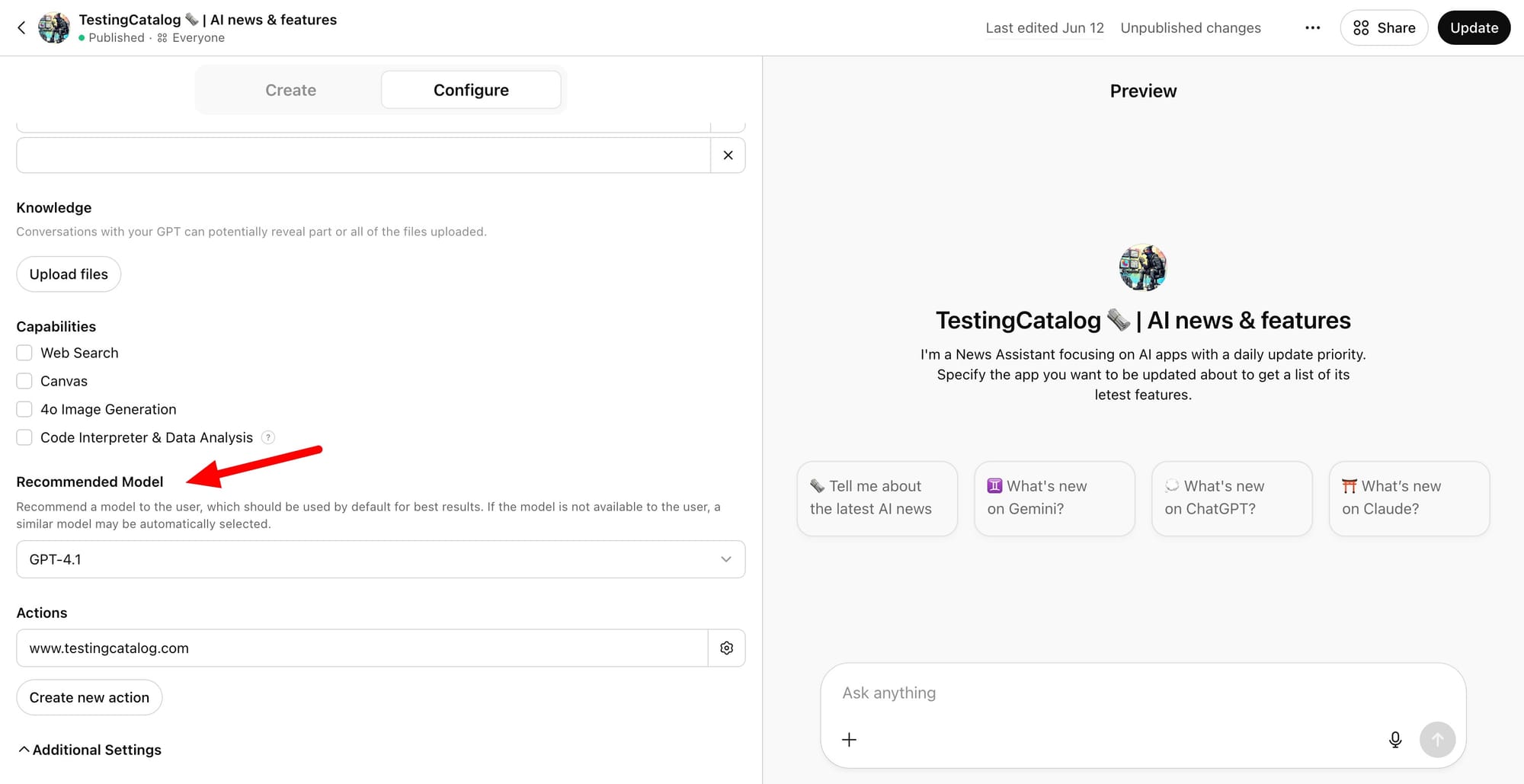OpenAI is preparing notable updates for both custom GPTs and its Codex code generation engine. For custom GPTs, a long-awaited feature will allow builders to specify a recommended model for their bots. This is achieved via a new dropdown in the GPT configuration settings, where creators can pick from available models based on the features their GPT uses. Not every model will be an option for every custom GPT, certain models, especially those specialized in reasoning, may only be available if the GPT’s capabilities are compatible. Once this feature rolls out, end users interacting with a custom GPT will see the recommended model labeled, adding clarity and potentially improving result consistency. As of now, the model selector for custom GPTs remains inactive, but the update is clearly in the pipeline.
New ChatGPT web app changes
— Tibor Blaho (@btibor91) June 11, 2025
- As part of the changes in the works, adding model selector for custom GPTs, GPT creators will be able to configure a recommended model (or "No Recommended Model - Users will use any model they prefer")
"Recommend a model to the user, which should… pic.twitter.com/JvheZBKziT
This feature is particularly relevant for creators and businesses still using custom GPTs outside the more advanced “Projects” workflow. It gives them more control over which version of the GPT architecture powers their bot, which could affect quality, speed, or cost. Given that custom GPTs continue to have an active user base, this flexibility could help maintain their value within OpenAI’s growing ecosystem.
Meanwhile, Codex is also getting a workflow upgrade. Soon, users will be able to set how many code variations Codex should generate for a given request—options range from one to as many as eight. This means Codex can produce multiple code drafts automatically, streamlining the process for those refining or comparing solutions, and removing the need to manually rerun tasks to get more options. These enhancements were surfaced through analysis of recent platform updates, but don’t yet have a firm release timeline.
OpenAI, the company behind these changes on ChatGPT, is currently focusing on giving more customization options to developers while refining its product suite. The move to let users recommend models and automate code generation attempts points to a strategy of empowering power users and developers, making their tools both more flexible and efficient. These updates, once launched, will likely be surfaced within the configuration panels of custom GPTs and Codex-powered interfaces, supporting a wide range of use cases from personal automation to enterprise code workflows.






